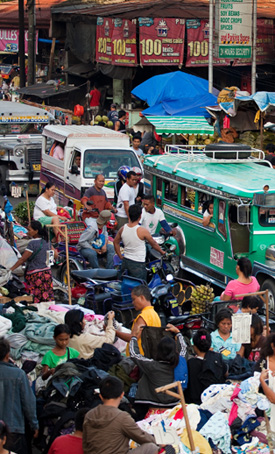The global expansion of migration over the past two generations has ushered in major social and economic changes, as well as profound ethical challenges concerning how citizens are to coexist in pluralistic societies.
Now home to millions of migrants as well as long-established locals, the major urban centers in North America and Western Europe are living laboratories in which new models of pluralist citizenship are today being formulated, implemented, and contested.
The challenge of migration and social pluralism is a matter of public ethics and citizen socialization as much as it is economic development and formal political representation. In addition to civic associations and political structures, then, for a citizenry to be tolerant and inclusive requires citizenship practices and an “overlapping consensus” – of some sort – to span religious and social divides. Secular and religious actors have a pivotal role to play in the construction of the terms for this pluralist citizenship. Devising and socializing a public ethics and practice of citizenship capable of responding to migration and the new pluralism is one of the central political and ethical challenges of our age.
It is against this backdrop that Contending Modernities is conducting a research program on migration, citizen education and socialization in five metropolitan centers in North America and Western Europe.
The program is currently divided into two complementary research initiatives:
Community Organizing, Migration and the New Cosmopolitanism
London is an ideal site to investigate new forms of civic identity, citizenship and civil society. Central to the emerging multicultural cosmopolitanism are people of faith, whose religious identity and commitments—not least their understanding of what constitutes a just and humane society— informs their interaction with one another and with secular actors and institutions. Working in collaboration, and in other cases in competition, Christians, Muslims (as well as Sikhs, Buddhists, Jews, and Hindus), civic and business leaders, and political action groups are working to build community, gain representation and shape local and national democracy.
Public Ethics and Citizenship in Plural Societies
Although the challenge of migration and multicultural citizenship is general in today’s world, this project highlights and compares the efforts of Muslim, Catholic, and secular leaders and citizens in five Western cities to respond to the challenge of pluralism and citizenship in societies with significant Muslim and Catholic, as well as secularist, populations. In so doing, the research examines the implications of migration and the new pluralism for these three ethico-religious traditions, and highlights the lessons of their experience for other countries and ethical traditions.

